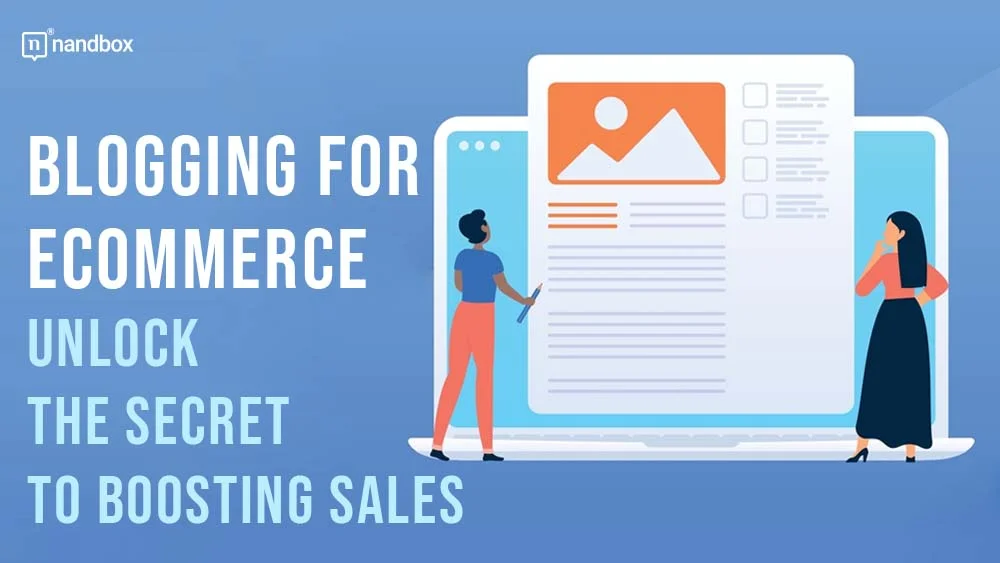eCommerce is competitive, and countless brands are all vying for consumer attention, which is why standing out is so important—and more challenging—than ever before. One of the most effective ways to rise above the noise is through strategic content marketing, particularly blogging. When it’s done correctly, blogging not only engages your audience but also boosts your website’s SEO performance.
Not sure where to start? We’ve got you covered. We’ll explore how blogging for eCommerce can become your secret weapon for SEO success and why it’s a must-have in your digital marketing strategy.
Why Blogging is Essential for eCommerce
eCommerce is primarily driven by two things: visibility and conversions. Blogging supports both objectives by improving search engine rankings, driving organic traffic, and helping convert visitors into customers. Here’s why blogging is indispensable to your business:
Improved Search Engine Rankings
Search engines like Google prioritize websites that consistently publish fresh, relevant, and high-quality content. Each blog post you publish is another indexed page, increasing your chances of ranking for specific keywords.
Organic Traffic Growth
A well-optimized blog can attract potential customers through organic search. These visitors are often already interested in your products, making them more likely to convert.
Establishing Authority
Blogging allows you to position your eCommerce brand as an industry expert. Customers are more likely to trust brands that provide valuable insights and information.
Better User Engagement
Blog posts encourage longer site visits, reducing bounce rates—a metric search engines use to determine a site’s relevance.
Boosted Social Media Reach
Blogs provide shareable content for social platforms, extending your reach and increasing brand awareness.
How You Can Use Blogging to Improve eCommerce SEO
Target Long-Tail Keywords
Blogging is an excellent way to target long-tail keywords—specific, lower-competition phrases that potential customers type into search engines. For example, instead of targeting “sneakers,” a blog post could focus on “best sneakers for running in winter.”
These long-tail keywords are less competitive, meaning it’s easier to rank for them, and they often attract users with a higher intent to purchase.
Build Internal Links
Blogs offer an opportunity to create a web of internal links—especially when crafted with the help of an experienced Ecommerce SEO Agency—by linking to product pages, category pages, or other relevant blog posts, helping search engines understand your site’s structure. Internal linking also keeps users on your site longer, increasing the likelihood of conversion.
Earn Backlinks
High-quality, informative blogs are more likely to be referenced by other websites, earning you backlinks. Backlinks are a key ranking factor in Google’s algorithm and can significantly boost your site’s domain authority.
Regularly Update Content
Search engines favor websites with fresh content. Regularly publishing blog posts ensures your site remains active and relevant in the eyes of Google, improving your overall SEO performance.
Types of Blog Content That Work for eCommerce
Not all blog content is created equal. One can emphasis to write blog on WhatsApp Marketing, WhatsApp commerce, WhatsApp eCommerce Store for maximise customer engagement and lead generation. To maximize your SEO and engagement, focus on these types of content:
How-To Guides
Step-by-step guides related to your products are both informative and actionable. For example, if you sell skincare products, a blog titled “How to Build a Morning Skincare Routine for Glowing Skin” can attract readers searching for advice and gently guide them toward your products.
Product Comparisons
Blogs that compare products help customers make informed decisions. For example, “Top 5 Eco-Friendly Water Bottles for 2024” can showcase your products while educating readers.
Seasonal Content
Create content tailored to specific holidays or seasons, like “10 Gift Ideas for Father’s Day” or “Top Summer Accessories for Outdoor Adventures.” Seasonal content can capitalize on time-sensitive searches.
Industry Insights and Trends
Stay ahead of the curve by discussing trends in your industry. Customers appreciate brands that demonstrate expertise and stay relevant in a fast-changing market.
Customer Stories and Testimonials
Feature stories from satisfied customers to build trust and credibility. For instance, a blog post titled “How Our Custom Running Shoes Helped Jane Win Her First Marathon” can resonate with readers and inspire them to purchase.
They’re also more human, which is great when you’re pairing them with other types of blog posts on the site, such as How-To Guides and other informational articles.
Best Practices for eCommerce Blogging
Conduct Keyword Research
Keyword research is the foundation of any successful blog. It will help you come up with an endless supply of topics for your blog posts. Use tools like Google Keyword Planner, Ahrefs, or SEMrush to identify keywords with high search volume and low competition.
Write for Humans First, Search Engines Second
While optimizing for SEO is important, the primary focus should be on delivering value to your readers. Engaging, informative, and well-written content naturally performs better, so make sure your writing is up to scratch.
Optimize Blog Posts
Make sure each blog post is optimized for SEO. Include:
- A keyword-rich title and meta description.
- Header tags (H1, H2, H3) for better readability.
- Alt text for images.
- Internal and external links.
Leverage Visual Content
Include images, infographics, or videos in your blog posts. Visuals not only make your content more engaging but also improve your chances of ranking in image search results.
Promote Your Blog
Share your blog posts on social media, in email newsletters, and through other marketing channels to drive traffic and engagement.
Why You Should Partner with Experts
While blogging can be a game-changer for eCommerce SEO, it requires a deep understanding of SEO principles, content strategy, and your target audience. This is where partnering with experts like DTCSEOAgency.com can make a difference.
Content agencies specialize in helping eCommerce brands achieve their SEO goals through tailored strategies that drive measurable results. From keyword research to content creation and optimization, their team ensures your blog becomes a powerful tool for growth.
Conclusion
In the ever-evolving landscape of eCommerce, blogging remains essential to effective content marketing. By consistently publishing valuable, SEO-optimized content, you can attract more organic traffic, improve your search engine rankings, and ultimately drive sales.
For those looking to maximize their blogging efforts, partnering with a professional team ensures your content strategy is built on proven expertise and designed for success.
nandbox App Builder
In the competitive eCommerce industry, blogging has emerged as a game-changing tactic for increasing SEO and sales. Businesses that create compelling and value-driven content can increase organic traffic, enhance search rankings, and build trust with their audience. eCommerce firms can expand on this strategy by including blogs in custom mobile apps using tools such as the nandbox app builder. The nandbox app builder allows businesses to create native, feature-rich apps without coding, guaranteeing that information is delivered seamlessly to clients. In 2024, integrating blogging for eCommerce with mobile accessibility can lead to unprecedented growth, making platforms like nandbox critical for remaining ahead of the market.





